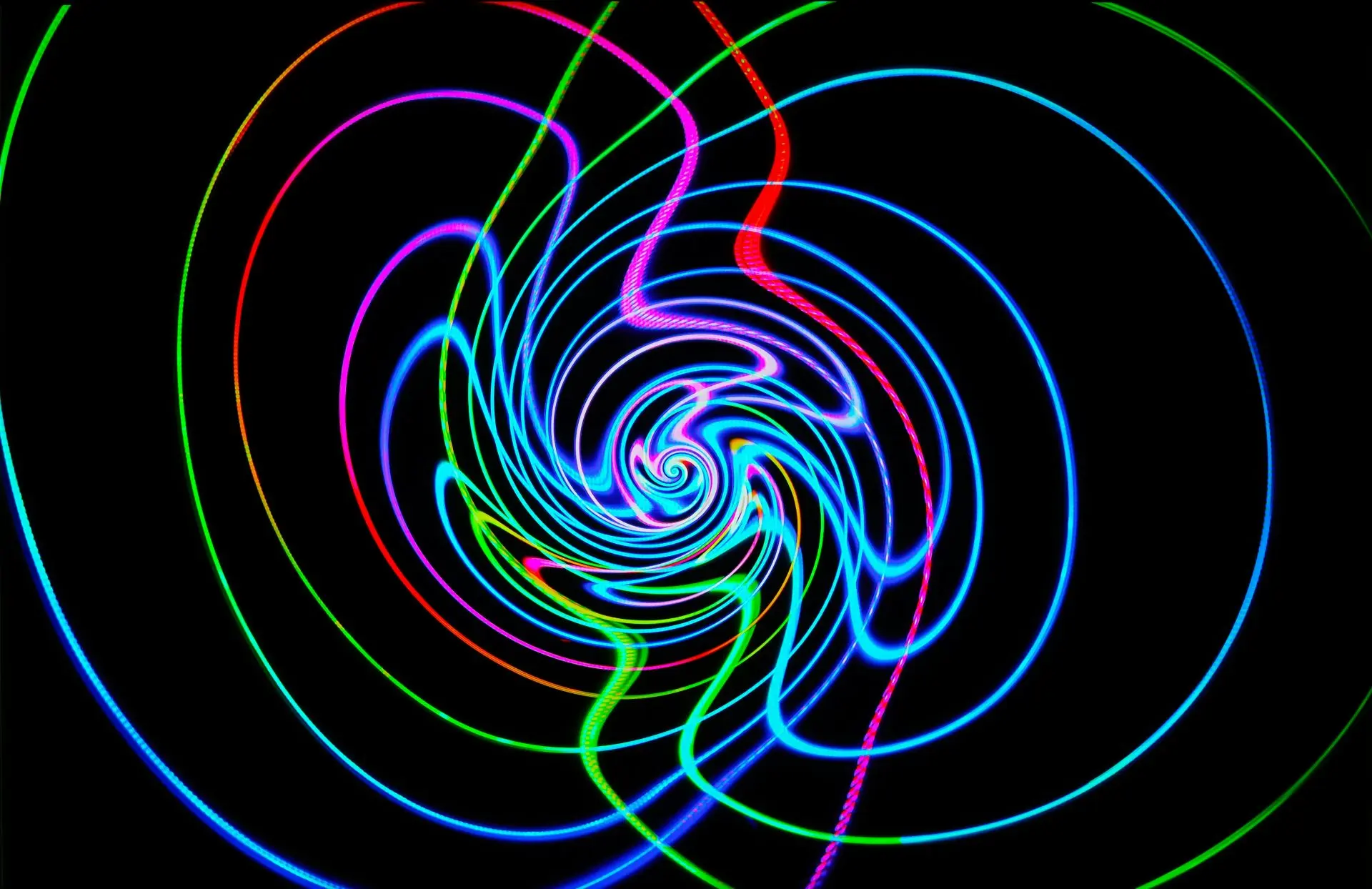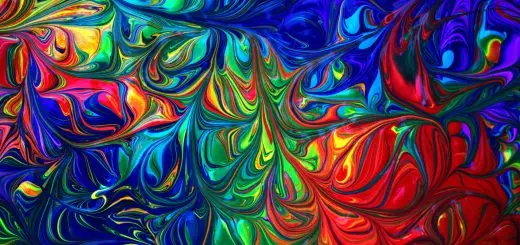The Gryphon: A Powerful Symbol in Myth and Legend

Looking for more amazing products? Check out our online store and explore our collection here! Happy shopping!
Before diving in, please note: This post is for informational purposes only. If you’d like to know more about how we approach topics, feel free to check out our friendly Disclaimer Page.
Hey there, amazing readers! 
We’re committed to delivering quality posts, and your support (even just sticking around despite the ads) means everything to us. So, bear with us, and thanks for helping us keep the good vibes rolling. Now, on to the fun stuff!
TRANSLATE BUTTON AT THE END OF THE ARTICLE
A Quick Overview
The gryphon, a creature as fascinating as it is majestic, has captured the imagination of people throughout history.
With the body of a lion and the head and wings of an eagle, this mythical being represents a powerful combination of strength and grace.
In various cultures, it symbolizes many things, from protection and power to nobility and wisdom.
So, let’s embark on this journey together as we explore the origins, symbolism, and enduring legacy of the gryphon!
The Gryphon: A Majestic Blend of Strength and Grace
The gryphon is truly an extraordinary creature.
Imagine a lion, the king of the jungle, coupled with the eagle, a symbol of the skies.
This hybrid animal exudes a unique charm that speaks volumes about its nature.
The lion, known for its courage and strength, combined with the eagle’s keen vision and soaring ability, creates a being that embodies both terrestrial and celestial powers.
I like to think of the gryphon as representing the best of both worlds—a creature that can roam the earth with the prowess of a lion while surveying the skies with the sharp eyes of an eagle.
This duality makes the gryphon a versatile symbol, often depicting qualities that we admire most in leaders: bravery, wisdom, and a far-reaching perspective.
Beyond its physical traits, the gryphon’s persona resonates with many.
It embodies the idea of balance.
Strength alone is often not enough; wisdom must accompany it.
In this way, the gryphon encourages us to marry our strengths with our insights for a more holistic approach to life.
In art and literature, the gryphon often appears as a noble figure, evoking admiration and respect.
This majestic being encourages us to aspire to greater heights, whether in our personal endeavors or in our relationships with others.
Indeed, the gryphon is more than a symbol; it’s a reminder of the potential within each of us.
Unraveling the Origins of the Gryphon in Mythology
The origins of the gryphon can be traced back to ancient mythology and folklore.
Its first appearances likely emerged in the Middle East, particularly in the art and culture of the ancient Persians and Egyptians.
The earliest known depictions date back to around 3000 BC.
Isn’t it incredible?
This creature has been around for thousands of years!
In Egyptian mythology, the gryphon was associated with divinity and the protection of the pharaohs.
The creature symbolized the union of the earthly and the divine.
It was often found guarding sacred spaces and treasures, showcasing its role as a protector.
As we follow the trail of history, the gryphon pops up in Greek and Roman mythology too.
The Greeks revered this creature, often depicting it as a guardian of gold, particularly in the tales involving the Arimaspi, a mythical tribe said to steal gold from gryphon nests.
The gryphon didn’t just stop there; it traveled through the ages and across continents.
In medieval Europe, it became a popular symbol in heraldry, representing nobility and valor.
Its rich tapestry of origins weaves a story of cultural significance that spans ages.
Do you see how the gryphon has transcended its initial roots?
It evolved from a mere mythical creature to a symbol of strength, wisdom, and protection throughout various cultures.
The Gryphon’s Role in Ancient Civilizations and Cultures
The gryphon has long been a recurring theme in ancient civilizations.
From Egypt to Mesopotamia, this creature has played varying yet significant roles.
In ancient Egyptian culture, the gryphon was often linked to the sun god Ra, symbolizing the power of the pharaohs.
This connection tied the gryphon to divine rule and authority.
In Mesopotamia, the gryphon appeared in art and architecture, often depicted in bas-reliefs showcasing its power.
These cultures believed that the gryphon could ward off evil spirits and protect sacred spaces.
In Greek mythology, the gryphon became a guardian of treasures, mainly associated with gold.
It was said to build nests with gold and keep watch over it, making it a symbol of wealth and protection.
This portrayal reinforced the idea of the gryphon as a protector, not just of material riches but also of spiritual ones.
The Chinese also had their interpretations of the gryphon.
In their culture, the creature often represented wisdom and knowledge.
It was believed that the gryphon could foresee events, making it an essential figure in matters of fate and fortune.
What’s fascinating is how this creature has seamlessly integrated into different cultures while maintaining its core traits.
It serves as a reminder that, despite our diverse backgrounds, there are universal ideals of strength and protection that resonate across humanity.
Symbolism of the Gryphon: Power and Protection Combined
The gryphon symbolizes a powerful blend of attributes, making it a versatile emblem in various contexts.
On one hand, it represents strength and courage, akin to a lion.
This trait encourages individuals to embrace their inner warrior, to stand tall and face challenges head-on.
On the other hand, the eagle aspect brings wisdom and foresight into the mix.
The eagle’s ability to soar high above the ground and see the bigger picture reminds us of the importance of perspective.
It encourages us to rise above daily struggles and gain clarity on our life’s journey.
Together, these traits create a powerful symbol that evokes both admiration and respect.
It’s no wonder that the gryphon has been a source of inspiration for many—poets, artists, and thinkers alike.
Moreover, the gryphon embodies the idea of guardianship.
Its role as a protector makes it an ideal symbol in contexts where defense is paramount.
Whether guarding treasures or sacred places, the gryphon stands as a sentinel, vigilant and fierce.
This duality of strength and protection speaks to our human experience, highlighting our need for both force and wisdom.
In a world that often feels chaotic, the gryphon serves as a reminder that we can protect what we cherish while maintaining a strong sense of self.
The Gryphon in Art: Capturing Beauty and Ferocity
Art has long been a medium through which the gryphon has been depicted.
Artists through the ages have captured its majestic form in various styles, each bringing their unique interpretation to this legendary creature.
In ancient artifacts, we see gryphons carved into stone, their fierce expressions and powerful poses conveying a sense of nobility.
These artworks often serve as guardians themselves, placed at entrances or in temples to ward off evil.
During the Middle Ages, the gryphon became a popular subject in tapestries and illuminated manuscripts.
Artists painted them not just for their beauty but also to symbolize protection and strength.
The intricate details in these works highlight the creature’s majestic nature.
Fast forward to the Renaissance, and the gryphon continued to inspire artists like Albrecht Dürer, who showcased it in his engravings.
This period marked a renewed interest in all things classical, and the gryphon was no exception.
Modern interpretations vary widely.
From sculpture to digital art, contemporary artists blend traditional and innovative techniques.
I love seeing how the gryphon’s image has evolved while retaining its core symbolism.
Artistic representations of the gryphon remind us of its timeless appeal.
Whether fierce or gentle, it captures our imagination and serves as a powerful emblem of our aspirations and dreams.
Famous Gryphon Legends from Around the World
The gryphon has inspired countless legends and stories across cultures.
One such narrative is from ancient Greece, where the creature was believed to guard the gold of the Arimaspi tribe.
These stories depict epic battles between the gryphons and the thieves, emphasizing the creature’s role as a fierce protector.
In Persian mythology, the gryphon is often associated with the mythical creature known as the Simurgh.
This bird-like being embodies the wisdom of the ages and is said to reside in the sacred tree of life.
The connection between these two creatures showcases the universal themes of guardianship and wisdom.
In Native American folklore, you’ll find tales of gryphons as protectors of sacred lands.
These stories emphasize the bond between the gryphon and nature, portraying it as a guardian spirit watching over the environment.
One particularly charming story is that of the gryphon’s nest.
It tells of how these creatures would build their nests high in the mountains, lined with gold and jewels, fiercely protecting their young.
This legend has inspired many interpretations in literature and art alike.
These legends are not just tales; they reflect the values and ideals of the cultures from which they originate.
The gryphon stands as a reminder of our shared human experience, illustrating themes of bravery, protection, and wisdom.
The Gryphon as a Guardian: A Protector of Treasures
The gryphon’s role as a guardian is one of its most enduring characteristics.
It’s often depicted as a fierce protector, whether guarding treasures, sacred sites, or even the souls of the deceased.
In ancient times, gryphons were believed to nest in remote mountains, safeguarding gold and riches.
This portrayal reinforces the idea of the gryphon as a symbol of wealth and prosperity.
Many stories recount how individuals would go on quests to retrieve treasures guarded by gryphons.
These tales often underscore the values of bravery and cleverness, illustrating that only the worthy can claim the riches protected by this formidable creature.
In art, gryphons are often depicted in regal poses, standing watch over their treasures.
This representation serves to emphasize their role as guardians, providing a sense of security to those who rely on their protection.
The idea of the gryphon as a guardian resonates with many today.
It reminds us that protection comes in many forms, whether it’s safeguarding our loved ones, our dreams, or our values.
Gryphons in Heraldry: Emblems of Valor and Nobility
Heraldry often employed the gryphon as a significant emblem representing valor and nobility.
Its majestic form made it a popular choice for coats of arms and family crests throughout medieval Europe.
The gryphon symbolizes courage, honor, and protection—qualities that noble families sought to convey through their heraldic symbols.
Many families incorporated it into their coats of arms, with the gryphon often depicted in a fierce pose, wings outstretched, ready to defend its domain.
In addition to representing individual families, the gryphon also appeared in the coats of arms of entire nations.
For instance, the gryphon has been associated with various European kingdoms, further cementing its status as a symbol of strength and protection.
What I find particularly interesting is how the gryphon’s imagery has evolved in heraldry.
While still maintaining its core symbolism, the artistic interpretations have transformed, reflecting the styles and values of different eras.
The continued use of gryphons in modern heraldry is a testament to their lasting appeal.
They serve as a reminder of the virtues of bravery, loyalty, and guardianship that are still relevant today.
Literary Depictions: Gryphons in Classic Literature
The gryphon’s allure extends into the realm of literature, where it has appeared in various classic works.
From ancient texts to modern novels, this creature fascinates authors and readers alike.
In medieval literature, gryphons often appear as noble creatures, embodying the virtues of chivalry and honor.
Stories like "The Faerie Queene" by Edmund Spenser feature gryphons that serve as symbols of virtue and protection, guiding heroes on their quests.
Lewis Carroll’s "Through the Looking-Glass" introduces a whimsical take on the gryphon, showcasing its playful and curious nature.
This depiction adds depth to the creature, showcasing its multifaceted personality.
In J.R.R.
Tolkien’s "The Hobbit," the gryphon, while not explicitly named, is reminiscent of the fantastic creatures inhabiting Middle-earth.
The echoes of its symbolism of guardianship and strength resonate throughout the narrative.
These literary portrayals breathe life into the gryphon, enriching our understanding of its symbolism.
They encourage us to see beyond the surface and appreciate the deeper themes that this creature represents.
The Gryphon in Modern Media: Movies and Games
The gryphon has made a significant leap into modern media, starring in movies, video games, and television shows.
Its majestic form and rich symbolism make it an ideal candidate for fantastical stories, captivating audiences of all ages.
In animated films, such as "The Lion King," while not a direct representation, the gryphon’s attributes shine through in characters that embody strength and nobility.
These stories often echo the themes of guardianship and protection that the gryphon represents.
Video games such as "The Legend of Zelda" series feature gryphon-like creatures, allowing players to explore their worlds on the backs of these majestic beings.
The gryphon’s qualities of strength and wisdom resonate with players, making it a beloved companion on these adventures.
Fantasy literature also embraces the gryphon, with series like "Percy Jackson" showcasing its role as a creature of strength and loyalty.
These modern portrayals keep the gryphon relevant, introducing its rich legacy to new generations.
The gryphon’s presence in modern media underscores its timeless appeal.
It serves as a bridge between the past and present, illustrating that these symbols continue to inspire and engage us in new ways.
Crafting Gryphons: How Artists Interpret This Creature
Artists have always found inspiration in the gryphon, crafting interpretations that reflect their unique styles and perspectives.
Throughout history, the gryphon has appeared in various art forms, each contributing to its rich tapestry.
From ancient sculptures to modern digital art, the gryphon has captured the imagination of many artists.
Each interpretation provides a fresh perspective while maintaining the core attributes of strength and wisdom.
In contemporary art, we see gryphons depicted in vibrant colors, often blending traditional and modern techniques.
Some artists take a whimsical approach, infusing humor into their designs, while others focus on the creature’s fierce nature.
There’s something magical about witnessing how different artists bring the gryphon to life.
Each piece tells a story, showcasing the artist’s interpretation of this legendary creature’s symbolism.
I find it wonderful how art continues to evolve while still paying homage to its roots.
The gryphon remains a beloved subject, inspiring creativity and innovation across various artistic mediums.
Why the Gryphon Continues to Inspire Today’s Culture
So, why does the gryphon continue to resonate with us today?
It’s simple.
This creature embodies qualities that we aspire to embody: strength, wisdom, courage, and protection.
In a world filled with challenges, the gryphon serves as a symbol of hope and resilience.
Its majestic form can inspire us to rise above adversity and protect what matters most in our lives.
The gryphon’s duality reminds us that strength must be paired with wisdom.
In our daily lives, we can strive for balance, seeking to embody both power and insight in our decisions and actions.
Moreover, the gryphon’s rich history and adaptability make it relevant across cultures and generations.
Whether in literature, art, or modern media, its presence continues to inspire creativity and imagination.
Let’s not forget that the gryphon is rooted in community, serving as a reminder of our shared values and ideals.
It connects us, transcending cultural boundaries and reminding us of our shared humanity.
In the end, the gryphon is more than just a mythical creature; it’s a symbol that encourages us to aspire to greatness.
It inspires us to protect, to dream, and to strive for a better tomorrow.
Conclusion
The gryphon stands as a powerful symbol in myth and legend, weaving its way through history and culture.
From its majestic blend of strength and grace to its role as a guardian and protector, this mythical creature continues to inspire us today.
Its lasting appeal lies in its rich tapestry of meanings, reminding us of the virtues we value most.
As we navigate our own lives, let’s carry the spirit of the gryphon with us, embracing our strengths and wisdom while protecting what we hold dear.
So, the next time you encounter a gryphon in art, literature, or media, remember its powerful legacy.
This creature has weathered the ages and continues to inspire us all.
Let’s celebrate its majesty and the lessons it imparts!

The Enlightenment Journey is a remarkable collection of writings authored by a distinguished group of experts in the fields of spirituality, new age, and esoteric knowledge.
This anthology features a diverse assembly of well-experienced authors who bring their profound insights and credible perspectives to the forefront.
Each contributor possesses a wealth of knowledge and wisdom, making them authorities in their respective domains.
Together, they offer readers a transformative journey into the realms of spiritual growth, self-discovery, and esoteric enlightenment.
The Enlightenment Journey is a testament to the collective expertise of these luminaries, providing readers with a rich tapestry of ideas and information to illuminate their spiritual path.
Our Diverse Expertise
While our primary focus is on spirituality and esotericism, we are equally passionate about exploring a wide range of other topics and niches 

To ensure we provide the most accurate and valuable insights, we collaborate with trusted experts in their respective domains 
Our blog originally focused on spirituality and metaphysics, but we’ve since expanded to cover a wide range of niches. Don’t worry—we continue to publish a lot of articles on spirituality! Frequently visit our blog to explore our diverse content and stay tuned for more insightful reads.
Hey there, amazing reader! 
Check out our store here and take a peek at some of our featured products below! Thanks for being awesome!













